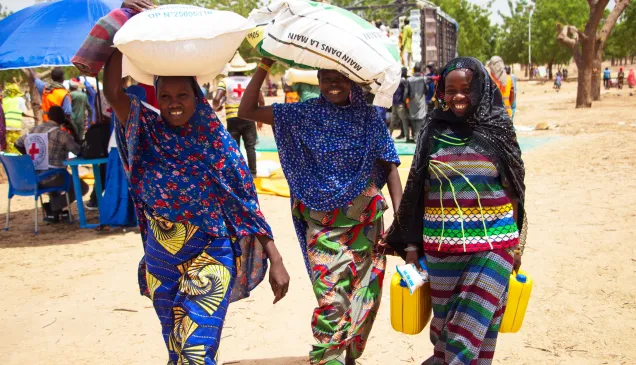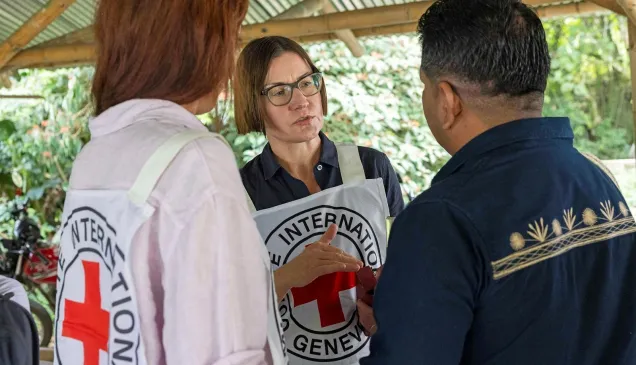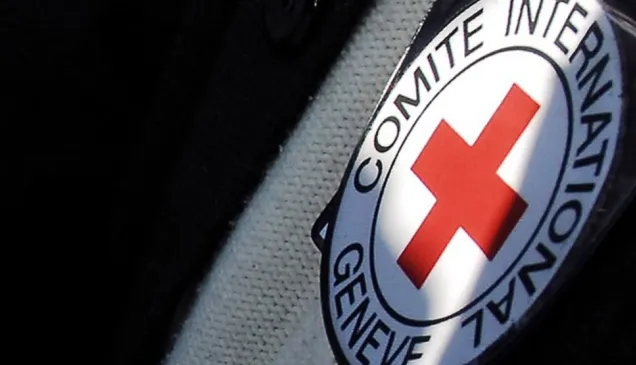Death of Jeanne Egger: emblematic figure of the ICRC
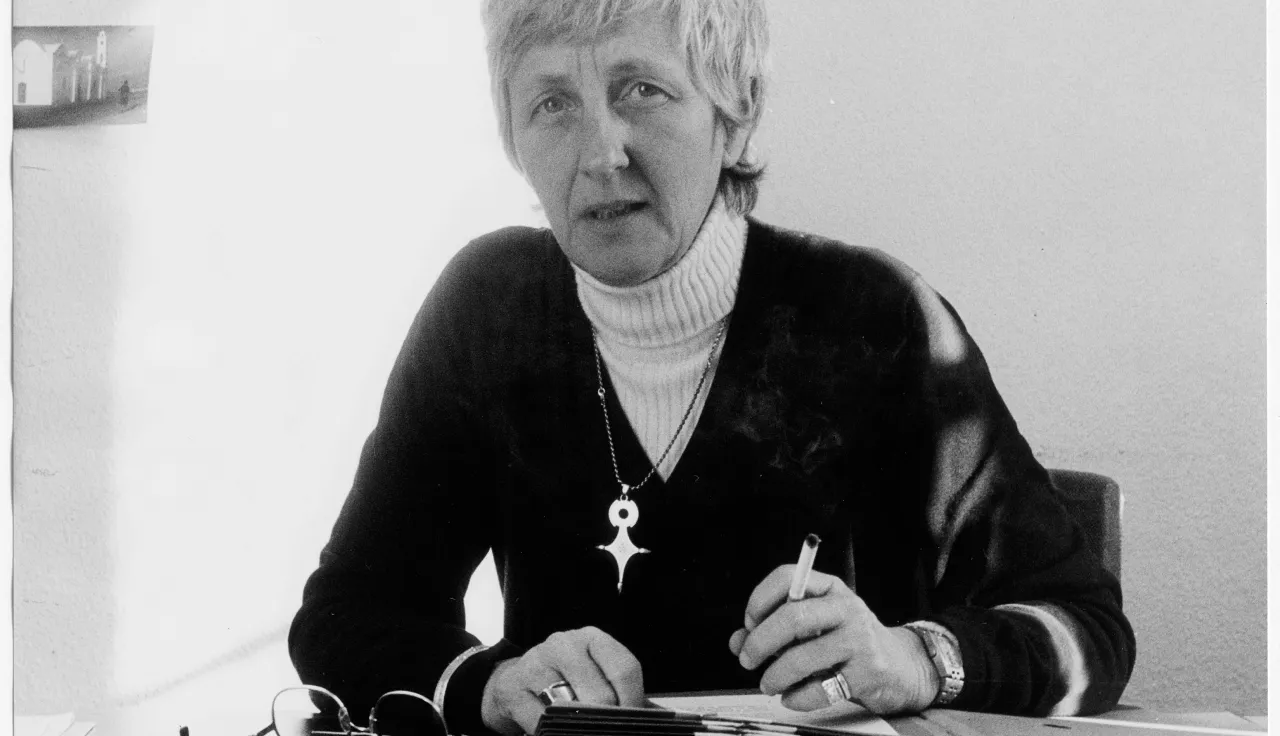
Jeanne Egger – the ICRC’s first female delegate after the Second World War – passed away in September 2023. “I found it hard to live without a commitment to work or to a person you want to help.” With these few words, Jeanne Egger encapsulated an entire life, her own, dedicated to the service of others.
Jeanne Egger put all her humanity, conviction and determination into her assignments for the ICRC and the Swiss Red Cross. She worked in the now Democratic Republic of the Congo, Cyprus and Burundi, and she helped to create the Rwandan Red Cross. She then moved to the ICRC's headquarters in Geneva, leading operations and cooperation with National Societies at the highest level. She rounded off her career as a regional delegate based in Dakar, Senegal.
In 1963, in the midst of a war of independence, Jeanne was appointed delegate to the Congo. She was one of the few women working in a humanitarian sector dominated by men. Jeanne won over even the most recalcitrant colleagues and officials with her professionalism and strength of character. Her meeting with Colonel Mobutu was memorable; she persuaded the future president that wounded soldiers should receive medical treatment and she made sure the ICRC could carry out its work.
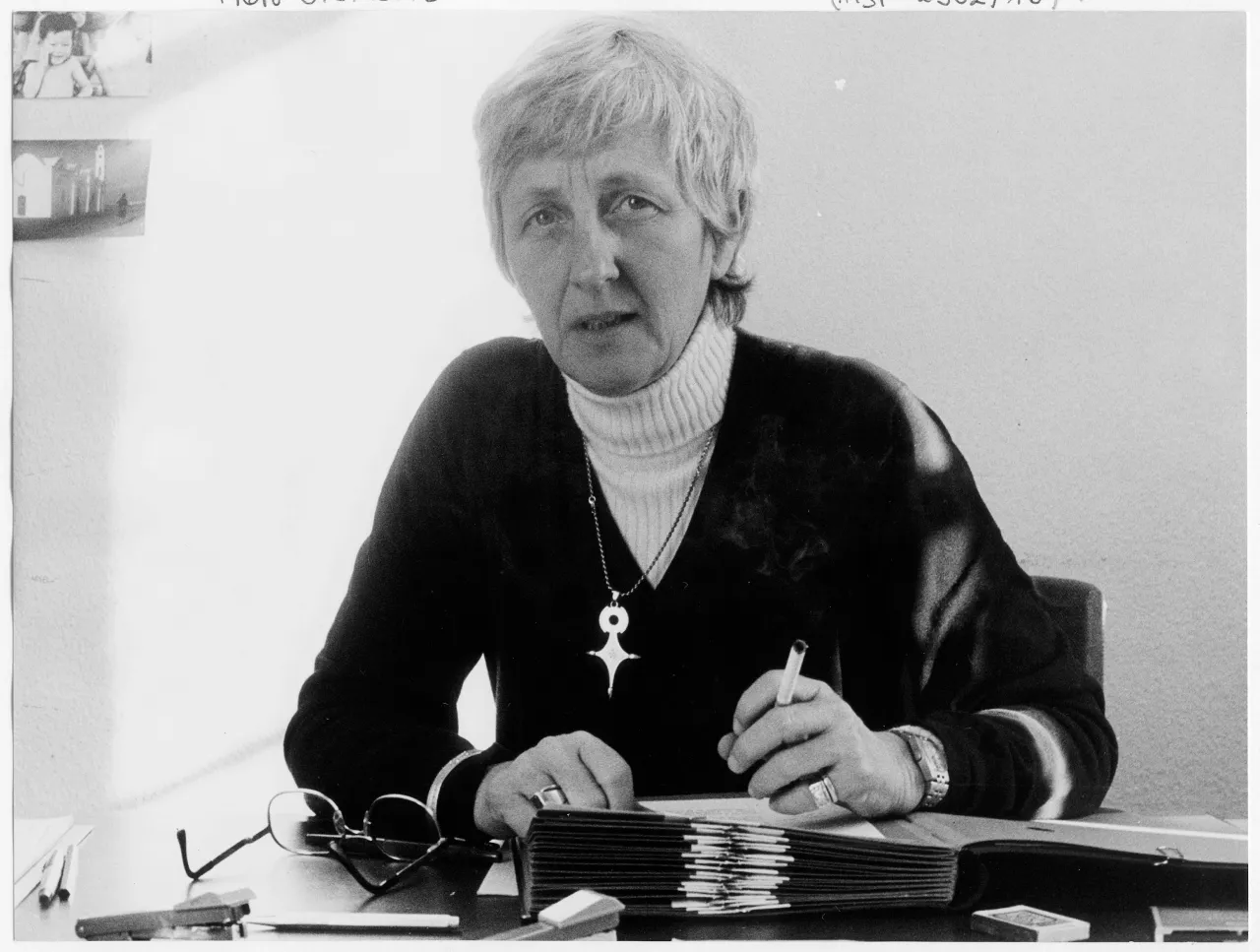
Jeanne Egger in 1976.
For many women today, she remains a source of inspiration.
Together with her partner Anne-Marie Grobet, Jeanne founded Dignity in Detention to improve the dire conditions of thousands of prisoners in Rwanda following the 1994 genocide.
Jeanne revisits key moments in her life in this 2015 video by the ICRC's delegation in Paris.
For friend and former colleague Jacques Moreillon, Jeanne was a legendary delegate and the embodiment of the ICRC: "an idealist, but not naïve", she possessed a "quiet strength" that she brought to bear on everyone, "victims and perpetrators alike".
Jacques Moreillon's tribute to Jeanne Egger at her burial in Saint-George's Cemetery in Geneva is provided below.
For Jeanne and Anne-Marie:
My first memory of Jeanne goes back to July 1973. Returning from South America, I went back to the Africa desk in Geneva. Jeanne's reputation as an Africa specialist preceded her, particularly in the Congo. She was one of those legendary delegates, like Pierre Boissier or Laurent Marti, who was spoken about in the corridors of the ICRC. The ICRC was quite small back then, with a tiny budget; everyone knew each other, either as colleagues or by reputation.
Jeanne was known for enjoying a laugh, but I have to say, as her new boss, what first struck me was how serious she was. There were only three or four of us on the Africa desk in Geneva, and this was a time when delegates were generalists; they did prison visits, provided relief to civilians, assisted the wounded and maintained a dialogue with National Societies, military commanders and the police, they were everywhere [...]. Right from the start, I realized that Jeanne was already doing all of this, instinctively and unprompted, without asking anything of anyone.
Jeanne also did something that was all too rare among delegates at the time; if she had to go to a new country, she would start by going to the archives [...] to understand what her predecessors might or might not have done. This was typical of her. She didn't believe that experience was merely a window on the past, rather she had a thirst for continuity, a desire to pass things on [...]. Her experience was not just to benefit the victims in her care, but other delegates too. And this experience was imparted gently, without imposition, without expounding any theories or ideologies [...]. Her anecdotes, often funny ones, allowed lessons to be learned ... not unlike the parables of Jesus.
Despite being an idealist who suffered because others suffered, Jeanne was far from being naïve. Her years in Africa had taught her to be cautious and she was nobody's fool ... She didn't hesitate to speak her mind to victims and perpetrators alike. She was calm but firm, with a no-nonsense approach imbued with humour and courteousness, and she brought to bear a quiet strength in her discussions.
I'm aware that talking to you about Jeanne in the 1970s is a bit like referring to Charles Aznavour and "La Bohème" – it's an unknown era for anyone under the age of 20. The times changed, but Jeanne stayed the same. So, when she created Dignity in Detention with Anne-Marie, she was driven by the same qualities, the same rigour, the same conviction, the same commitment.
When Nanou and I saw her again quite recently at home, we took a trip down memory lane, sharing anecdotes and laughter. And it was this era that we reminisced about, with its ineffable characters, like her friend and mentor Geoffrey Senn and, by way of contrast, Mobutu in Zaire!
We truly had the sense that this period of her life was still beating a rhythm in that big heart of hers, which was soon to be still.
And this is why I have talked to you today about the Jeanne from back then, the Jeanne who was actually the same Jeanne as she always was – the Jeanne who will remain etched in our memories forever.
You can also read about Jeanne Egger on the GlowRed website.
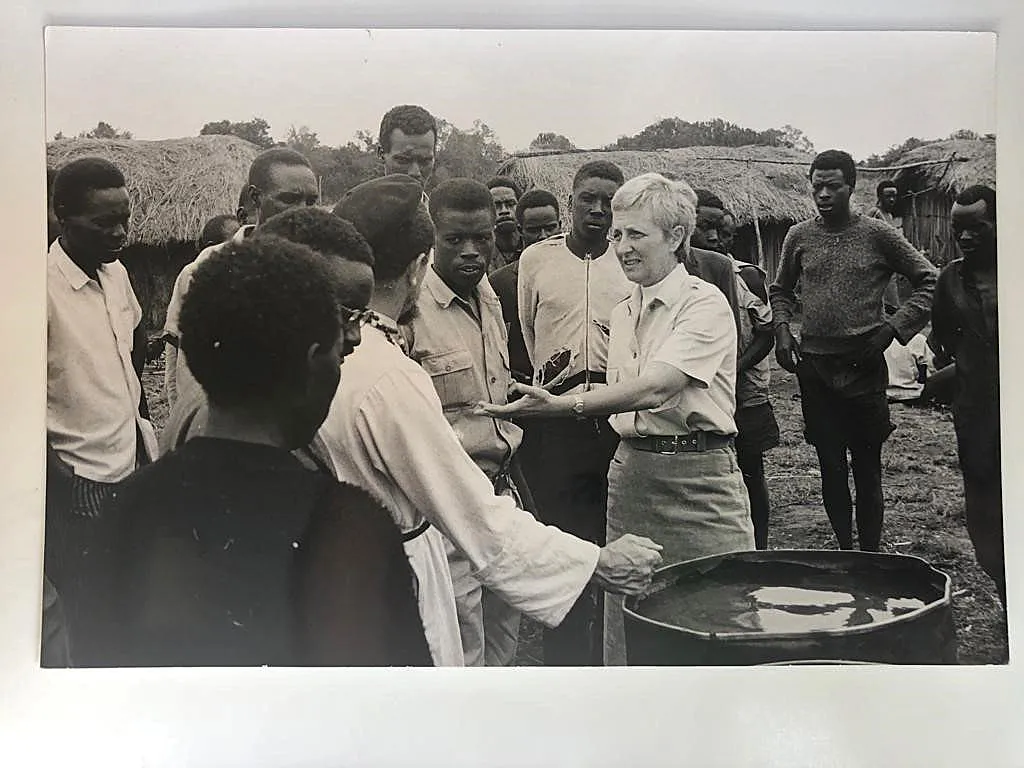
Ex-mercenaries and Katangese gendarmes detained in Rwanda in 1967 are visited by Jeanne Egger, who has come to check on their conditions of detention.

